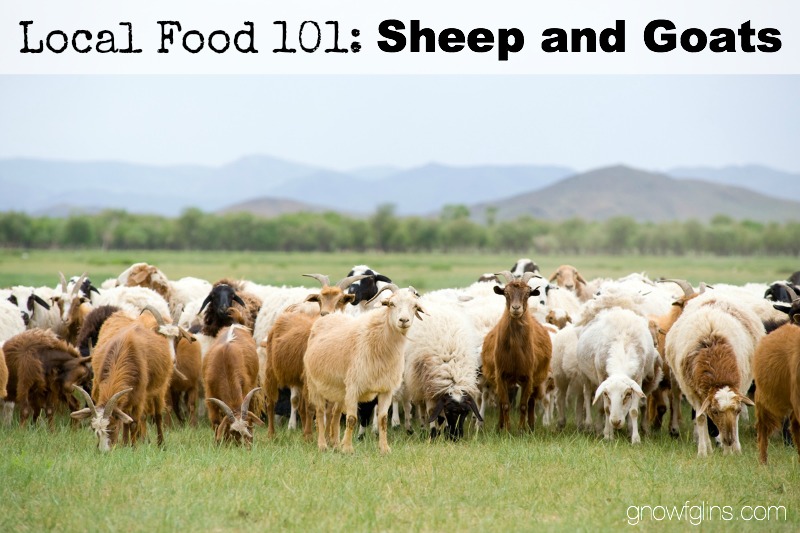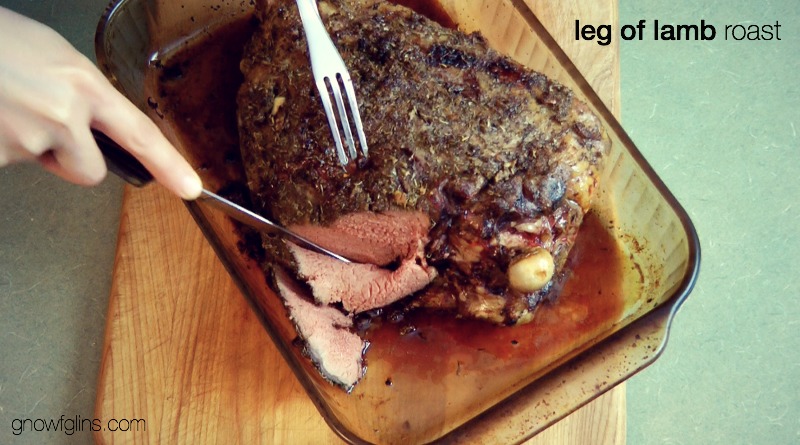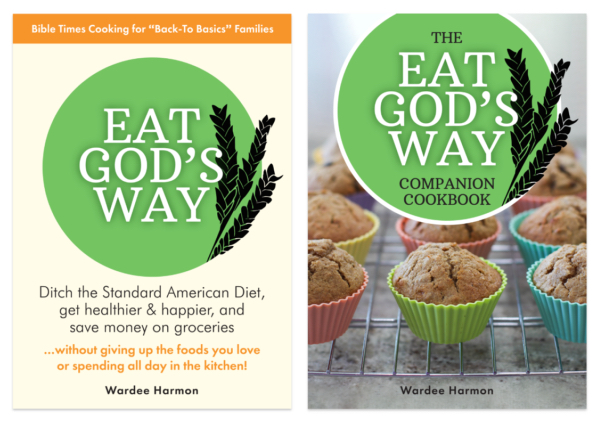
Knowing your food and your farmer. We talk about this, but why is it important? So you can support farmers who practice sustainable agriculture that improves the land, soil, and animal health; to provide healthy nourishment for you and your family; and ultimately to glorify our Creator through our recognition and pursuit of food systems that honor His design.
But how can you know if a particular food source is a wise and healthy choice? You start by talking to the farmer who produces it, asking questions that pertain to the type of food you’re buying.
This is the Local Food 101 series, where we’ll cover types of local food, along with the particular questions you can ask to determine the quality of the food being offered. We have discussed chickens and eggs, beef, produce, herbs, and pork. In this post we’ll tackle lamb and goats.
Sheep and goat products are not often sold in grocery stores, but are often readily available locally. Because they are not as commonly raised conventionally, it is often much easier to find them raised with healthier methods.
Living Conditions and Food
How are your animals raised and fed?
Sheep and goats should be grazed on pasture untreated with chemicals. If supplemental food is necessary, it should be non-GMO and preferably certified organic — or known to grown using organic methods even if not certified as such. It should be noted that this standard also includes animal bedding, because it too may also be ingested by the animals.
What do you do when an animal is sick?
While internal parasites may be common in sheep and goats, herbal treatments are preferred and antibiotics and vaccines avoided. Be sure to ask how sickness and parasites are handled by your farmer so that you can be comfortable with the answer.
Butchering and Cost
How are the animals processed? How much does it cost?
The animals should be processed as a batch that doesn’t include conventionally raised animals — to avoid cross contamination. Because sheep and goats are not as common, the prices for processing sheep and goats at outside processing facilities may be a little higher.

Flavor and Cooking Options
How do you cook it? Does it taste good? Do you have any good recipes?
Many Americans are timid with using any meat that strays from the common texture and flavor of our good ole’ standbys: chicken and beef.
However, lamb and goat meats are wonderful, healthy, and richly flavored. Experiment with and find recipes from other areas of the globe that use these meats all the time, and don’t be afraid to ask your farmer how to cook it. Farmers often lean toward producing foods they love to eat themselves, and they are often willing to share recipes with you!
Recipe ideas: Red Meat Winter Stew (so delicious!) and also you can find a delicious leg of lamb roast in the Fundamentals II module of GNOWFGLINS membership.
How do you cook sheep and/or goat? Feel free to link a recipe! Any other questions you would ask a farmer about these meats?
...without giving up the foods you love or spending all day in the kitchen!

2 free books:
Eat God's Way
Ditch the Standard American Diet, get healthier & happier, and save money on groceries...
We only recommend products and services we wholeheartedly endorse. This post may contain special links through which we earn a small commission if you make a purchase (though your price is the same).


You mentioned parasites being a common problem for sheep and goats. What is the recommended method of dealing with this? Are they any less likely to suffer from parasites when properly fed and cared for? Thank you! I am trying to learn as much as possible about chickens and goats in the next year so hopefully we can begin raising our own.
I have never eaten goat but we have eaten a lot of lamb. We purchased one whole (already butchered) from the local Four H a few years ago. Ground lamb patties with roasted potatoes are delicious.
Does anyone know how easy either of them are to raise? I’m curious….
Hi. We live in Australia where sheep are very common place here. Its funny to hear you say that people don’t know how to cook, eat or raise sheep. Sheep are pretty easy to raise, they need a good fence and non running fresh water (like a dam or old bath) and lots of grass to graze, and some trees for shade. If you get heavy snow then a shelter of some sort would be good too. If your sheep breed need shearing then that needs to be done yearly.Goats are not very different except they definitely need shelter and are escape artists, so sometimes a tether is needed, they mostly dont need shearimg…but some breeds do. This isn’t by any means all you need to know, but its a start for those of you starting to consider sheep or goats. By the way, the meat from either is moist and succulent, and full of flavour. Give them a go…you will enjoy it.
I know that Ivermectin is no longer allowed for organic certifitcation. Does anybody have any thoughts on this drug being used? The local farm that has pastured lamb uses this on all their flock only when one lamb has parasites, and there are months before slaughter. Any thoughts would be appreciated!